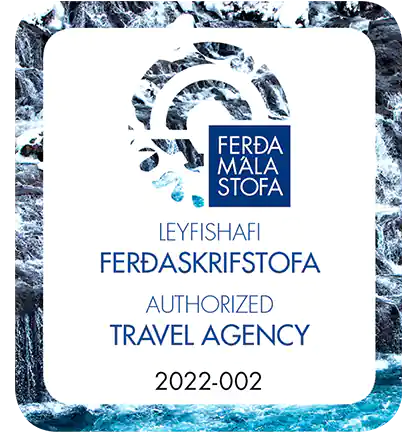frequently asked questions
transportation
The guide will meet the group at BSI Bus Terminal (map) in Reykjavik and the guide will make sure he/she is seen. The meeting time is 06:30 in the morging.
Accommodation
It’s a speeping bag accommodation in a dormitory in mountain huts. The huts usually have bunk beds with matresses. There is a shared kitchen with utensils and a dining room. Toilets are usually in a separate toilet houses and showers are available in some of the huts for a small fee.
For trips like the Laugavegur trail a good sleeping bag for indoor accommodation is sufficient. For camping trips a sleeping bag of comfort level 0° C to – 5° C (32 to 21°F) is advisable for a pleasant experience. If you don‘t have a suitable sleeping bag you can rent one from us.
Luggage
We recommend taking the most important equipment with you as cabin luggage during your flight or carry the respective clothes/shoes on your body, notably trekking boots and trousers, fleece shirt, warm and waterproof jacket, rain gear, functional underwear, glasses, hat, gloves, and everything else you consider important. In case of baggage loss, you are thus at least able to start the tour.
The luggage wight recommendation for the trip is 15 kg (33 lbs) per person + 6 kg (13 lbs) hand luggage. We strongly recommend that you travel with a duffel bag and a 30-40 liter daypack.
Yes, all major equipment such as sleeping bags, food and tents every time the group changes location. You only carry your day pack (30-40 liter backpack).
Hiking terrain
The terrain we navigate during the hikes usually follows known paths but can be uneven and sometimes rocky. It is important that participants are fit and experienced hikers.
Food & Water
Our aim is to have the food as fresh and nutritious as possible.
For breakfast we might make porridge, the Nordic breakfast classic, which gives fullness and long-lasting energy. We also bring muesli, bread, butter, cheese, and jam. And of course, tea and coffee.
In the morning, group members make their lunch-packs: bread, spreads, hams and cheeses. And nobody should go on a trek without biscuits. We will also provide some nuts and chocolate snacks but those who have special preferences might want to bring a few of their favorite energy bars or snacks.
The guide prepares dinner at the end of the day (help with chopping and preparing is appreciated). Each meal has three courses, starter, main and dessert. We try to have the menu diverse and keep a good balance. To give you an idea, you could have soup to start with, then fried fish and rice, and a piece of cake for dessert.
We will do our best to accommodate vegetarians and vegans. Information from participants regarding a gluten-free diet should be stated in advance.
Yes, that is possible. Information from participants regarding a gluten-free diet should be stated in advance.
The water from the tap is always good and it is also safe to drink directly from almost all lakes and rivers. Please help the environment, bring a water bottle, and never buy bottled water while in Iceland.
The Weather
As Iceland is a fairly large island, the weather depends on where you are in the country. We work a lot in the south and southeast of the Icelandic highlands, where the weather is a bit wetter than in the north of the country. Even though there are fewer rainy days than sunny days, this means that you have to be prepared. In the southern highlands, summer temperatures vary between +5°C and 20°C. A typical day is 10°C, light wind and partly cloudy. The average rainfall is over 1000 mm/year, so it occasionally rains heavily.
In short, the climate in Iceland is a subarctic to arctic climate. The weather is sometimes windy, sometimes wet, sometimes sunny, and most of the year the temperatures are cool to moderately mild.
Cash or Credit?
Yes, almost all supermarkets and stores accept international credit cards.
The currency used in Iceland is Icelandic Crowns (ISK).
Mobile phones - Charging
Most of Iceland has 4G/Internet services. Keep in mind roaming charges for those not from EU countries. For communication in the wilderness the guide carries a satellite device like an Iridium phone and/or InReach if no mobile phone connection is available in the area.
We strongly recommend bringing a power bank/spare batteries since most mountain huts have no electricity.
Travel Insurance
We kindly ask all our clients to purchase travel insurance that covers medical expenses and transportation needed for any emergencies that might come up.
Cancellations
If we don‘t have the minimum number of participants at least 6 weeks prior to departure we cancel that departure. In case your departure is cancelled we wil do our best to accommodate you on another confirmed departure. If that is not possible the terms of payment apply, see here.

